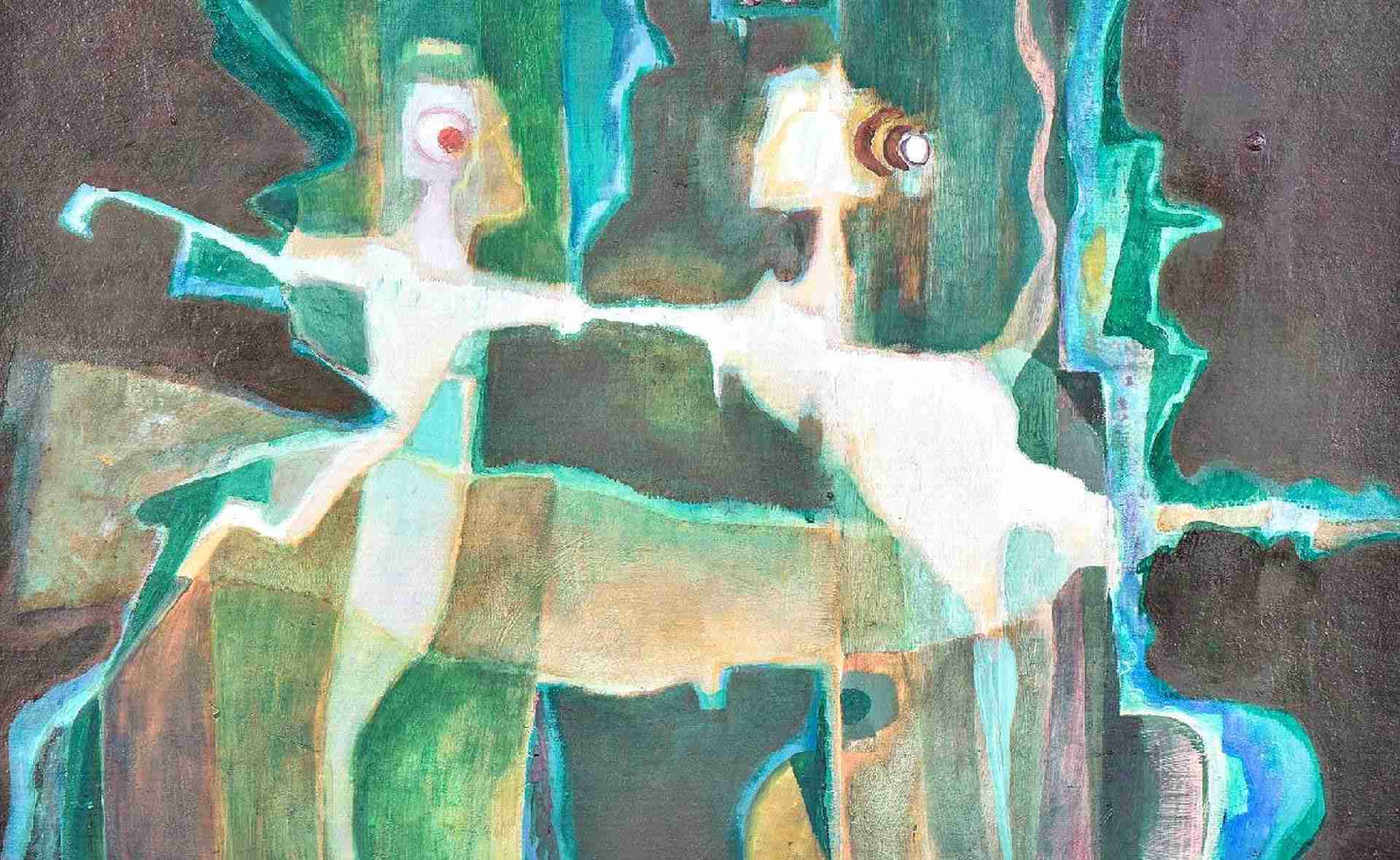Raekoja plats 18, 10146 Tallinn

Virág Dóczi: Dance of Lovers
Virág Dóczi's abstract fairy-tale artwork aims to take the viewer consciously back to the world of dreams, full of imagination and mystery. The paintings reflect various states of mind, and use of different techniques adds to the imagination. The artist is interested in the extent to which we are able to change the way we think and, as a result, the way we live our lives, or whether everything is completely predetermined. To what extent can we play with our own mind, and thus with our states of mind?
Virág Dóczi's painting exhibition will is open in Tallinn's Old Town in Hopneri House between 9 September and 28 November. In order to visit the exhibition please agree about the timing at info@hopnerimaja.eu or tel 6 455 321/ 59186229.
"I like to visualize the deepest inner thoughts. I like the scribbles on the walls, the naivety of children's and cave drawings. Figurality and abstraction meet in my paintings, my favourite motifs are tables, birds, houses, streets, bridges and gardens." - Virág Dóczi
Virág Dóczi was born in 1973 in Zalaegerszeg, Western Hungary.
Her educational background is as follows:
- 2011 University of West Hungary, Diploma in Painting, Department of Painting, Supervisor Szabolcs Mészáros.
- 2011 Graz Meisterschule für Kunst & Gestaltung, Diploma on Sculpture, Sculpture Department, tutor Markus Wilfing.
- 2012 Internationale Sommerakademie für Bildende Kunst Salzburg, instructor Hanspeter Hofmann.
- 2013 Graz Meisterschule für Kunst & Gestaltung, Department of Painting, Supervisor Prof Erwin Talker
In addition to Hungary, her solo exhibitions have been enjoyed by audiences in Austria, Croatia, Poland, Slovakia and Transylvania (Romania). Virág's art has also been exhibited at the Hungarian Institute in Tallinn in 2015 and at the Finno-Ugric Days in Riga in 2015, and in Iisalmi, Finland in 2016. The artist has taken part in several international art projects and painting camps (e.g. 2015 in Mazirbe, Kurland). Her works can also be found in the painting collection of the National Gallery of Hungary, in addition to several smaller collections.
Virág Dóczi's 'Personal Ethic' - concept
Whatever the genre, the message behind the artwork is about the human soul. The pictures reveal a fairytale-like inner world to the viewer.
In abstracting the forms, I deliberately sought to lead the viewer back to a world of dreams, to create associations of images. The works capture the imagination and this effect is reinforced by the range of techniques used.
Varying moods and states of mind are reflected in the paintings, which I have divided into the following series: Hope, Worm, Contact, Inner Garden.
A 21st century man left alone is embraced by a cold, unrelenting loneliness. The figures in the paintings are fatally lonely and homeless, appearing like splodges without details.
Personal Ethics is an internal command, a subjective assessment of right and wrong, a decision that influences our dreams, our loneliness and our instincts.
I am interested in how much we can change our way of thinking and consequently our life, or is it completely determined(?), and if we know to what extent, how much we can shape our thoughts and therefore our state of mind.
A short film entitled "Water" accompanies the material on Personal Ethics.
The film is a reflection on the purity of water and the rethinking of the unnecessary use of water. It points out the need to avoid tragedies, which I have tried to emphasise with the use of colour and sound effects. The combination of colours and sounds creates a dramatic effect. The contrast of red and gray and the rhythmic alternation of human and animal sound effects reinforce this.


